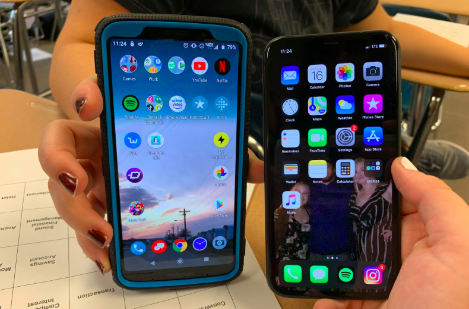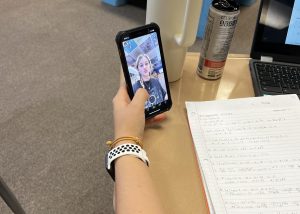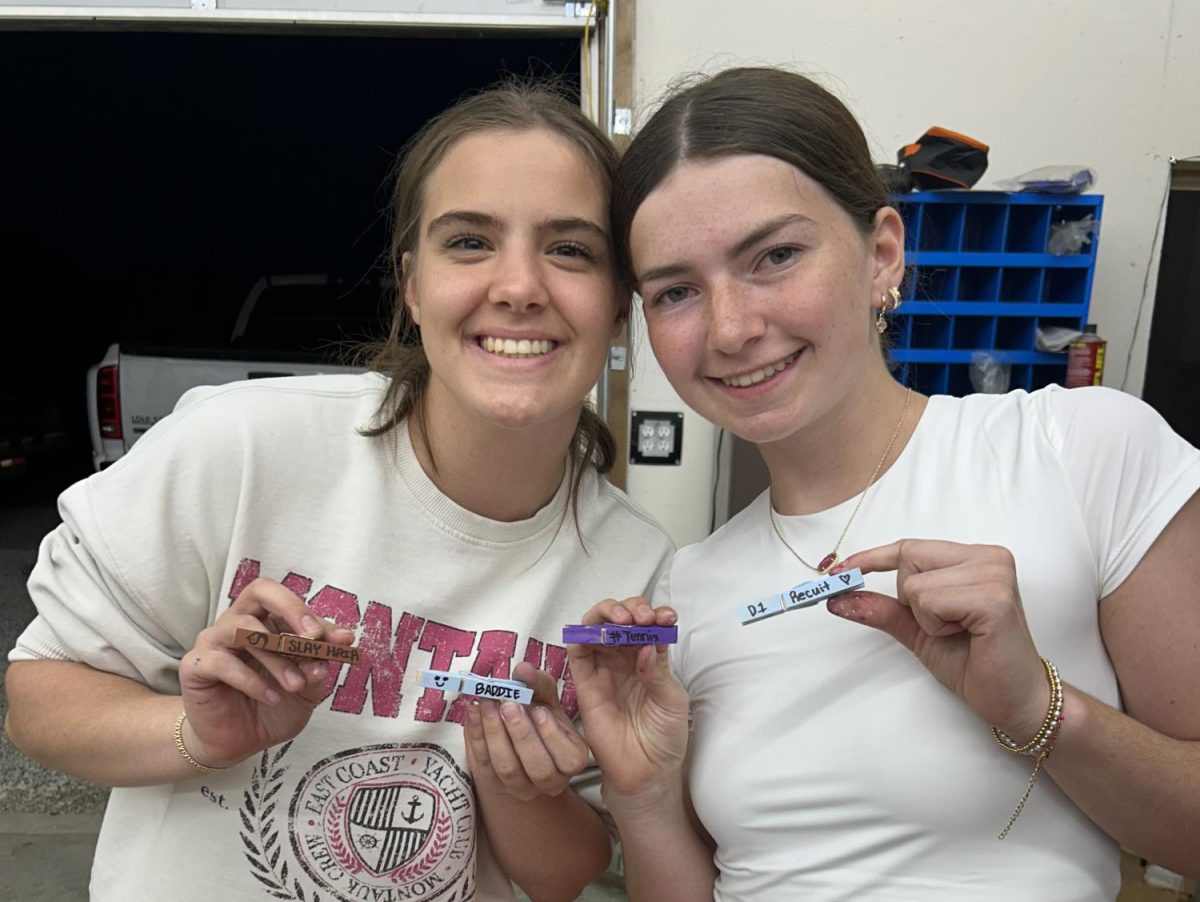The New Phone Policy Proves Positive for Students at AHS

Android and Apple cell phones can be found at AHS, as can the differing opinion on which device is better.
November 14, 2022
At the beginning of the 2022-2023 school year, Atlantic Community School District implemented a new cell phone policy with the hope to decrease distraction levels in the classrooms. Under the Electronic Devices and Cell Phone section of the Student Handbook, “Electronic devices, including but not limited to, cell phones, electronic games, laser pointers, personal music players, tablets, personal Bluetooth devices, smartwatches are not to be used by students during class time…Electronic devices cause disruptions and distractions to the learning environment.” At first, many students thought the new rule was taking things too far, but as the school year has progressed phone-free, some students are noticing an increase in their concentration levels during school.
UWHealth says that the presence of cell phones, even if the phone is turned off, creates a distraction to the phone’s owner. Productivity is often raised when technology is not heavily in use. According to HealthGuide, prolonged exposure to social media can lead to increased mental health problems in young adults, such as depression and anxiety. The use of social media can also lead to unhealthy behaviors such as comparing one’s self to others and cyberbullying. Spending time in the “real world” is an important aspect of our socialization.
Junior Kelsey Pross originally thought the new phone policy was “absurd,” but later realized it was actually helpful. Although others often call her opinion “stupid,” she feels that being phone-free can reduce conflict at school. “Last year there was texting throughout classes that caused drama in the halls and in the class. It’s more positive now because people aren’t cyberbullying, spreading secrets, or even cheating,” she said. Pross said the new phone policy has positively affected her mental health. “Last year, I had a lot of breakdowns because of my phone. Now that we have a policy, I think it makes it ten times better for everyone.” She thinks other students should be more accepting of the policy so they can learn real-world skills. She said, “If you’re on your phone all the time, you don’t know how to get a job, communicate with people, or understand facial expressions.” Pross said that reading text messages is a different experience than having a face-to-face conversation. “It’d be better without having phones because we do not know how to communicate with each other with facial expressions, or how to look at people with eye contact,” she said.
Like Pross, fellow junior Kaiden Hatley thought the new phone policy sounded “really stupid” when it was first introduced because she didn’t like the idea of not having her phone on her. But, she soon began to understand that the new policy has had more positive effects on students than she initially thought. “I realized it’s not as bad as I thought it was,” she said, but Hatley is not a fan of how harshly it’s enforced, because some students are getting in trouble for putting their phones away after the bell has rung. But, she said, “it can have a positive effect because people don’t get distracted as much and they can just focus on their work and get their work done.” A personal positive outcome that Hatley has experienced is not having to worry about what’s happening on social media while at school. She thinks others should be more accepting of the new policy because “a lot of drama happens on your phone, so that gets rid of an outlet to the drama.”
A survey was sent out to all AHS students regarding the new phone policy, of which 72 of them responded. About 26% of those students said that the phone policy has had a positive impact on them and their classroom experience. 23% of respondents have felt less distracted during class time, and continue to see their concentration levels improve. One question asked students to rate whether or not they feel like having a break from social media during school hours has been relaxing or frustrating for their mental health, to which 20% of students responded saying that they feel good about having a break from their phones. As the school year continues, some students might see a shift in their behavior that is directly related to their phone usage.









